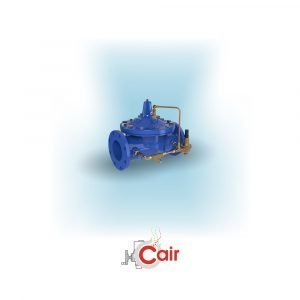In the world of fluid dynamics and industrial processes, the term "pressure regulating valve" holds significant importance. Whether you're a seasoned engineer or someone new to the concept, exploring the world of pressure regulating valves can provide valuable insights into maintaining optimal system performance and safety. This article will delve into the core aspects of pressure regulating valves, their functionalities, applications, and the benefits they offer.
Getting Acquainted with Pressure Regulating Valves
At its essence, a pressure regulating valve is a mechanical device designed to control and maintain a consistent pressure level within a fluid system. This pressure regulation is essential to ensure that equipment, pipelines, and components function efficiently while minimizing the risk of overpressure incidents. These valves work by adjusting the flow of fluid to maintain a set pressure level, making them a crucial component in a wide range of industries, including manufacturing, oil and gas, water treatment, and more.
How Pressure Regulating Valves Function
Imagine a situation where you have a complex network of pipes through which fluid flows. Without proper pressure control, the fluid might flow too forcefully, leading to leaks, bursts, or even equipment damage. Here's where pressure regulating valves step in. These valves have an internal mechanism that reacts to changes in pressure. When the pressure exceeds a predetermined level, the valve's mechanism adjusts the aperture size to reduce the flow rate, thereby bringing the pressure back to the desired range. Similarly, if the pressure drops below the set value, the valve opens wider to allow more fluid to pass through, raising the pressure to the optimal level.
Applications in Various Industries
Pressure regulating valves find their applications in diverse industries, each with unique demands and challenges. In the oil and gas sector, these valves are used to control the pressure of natural gas along pipelines, preventing potential hazards and ensuring a smooth flow. In the pharmaceutical industry, pressure regulating valves are utilized in the production of medications, where precision is paramount. Even in everyday household plumbing, pressure regulating valves play a role in maintaining consistent water pressure for a comfortable and efficient user experience.
Benefits Galore: Why You Need Pressure Regulating Valves
So, why should you care about pressure regulating valves? Well, the benefits they offer are numerous, and they go beyond just preventing pressure-related mishaps. When you incorporate these valves into your systems, you can experience enhanced equipment longevity. By avoiding excessive pressure, you minimize wear and tear on components, reducing maintenance costs and downtime. Moreover, pressure regulating valves contribute to energy efficiency. Instead of allowing excess fluid to flow through the system, these valves optimize the flow rate, saving energy and lowering operational expenses.
Selecting the Right Valve for the Job
Not all pressure regulating valves are created equal, and selecting the right one for your specific needs requires careful consideration. Factors such as the type of fluid, the required pressure range, and the environmental conditions should guide your decision. Consulting with experts in the field can help you make an informed choice and ensure that the valve you choose aligns with your objectives.
In conclusion, pressure regulating valves are unsung heroes in the world of engineering and industrial processes. Their ability to maintain stable pressure levels within fluid systems ensures safety, efficiency, and longevity. From complex oil pipelines to everyday household appliances, pressure regulating valves impact a wide range of applications. So, the next time you encounter a fluid system, remember the crucial role these valves play in keeping things running smoothly.


No comments yet